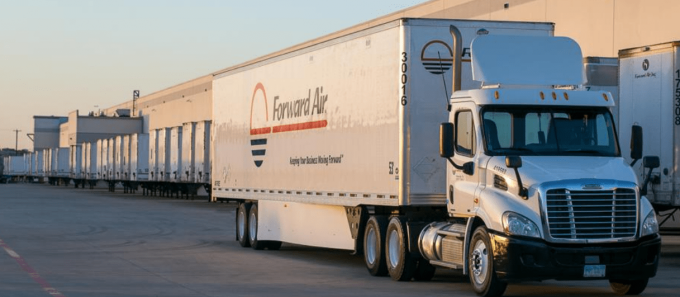Minority holder Ancora urges Forward Air investors to vote 'against three unfit legacy directors at 2025 AGM'
PRESS RELEASE Ancora Issues Letter to Forward Air Shareholders Regarding the Need to Vote AGAINST Three Unfit Legacy ...

After a tumultuous 2020, US trucking firm Forward Air is on a roll, with Q2 yielding record revenues and operating income.
And management guidance for the current quarter shows continuing growth.
The company tabled revenues of $420.7m, an increase of 49.3% year on year and a new ...

Comment on this article